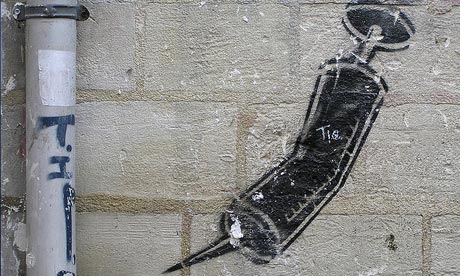
Pre-trip injections are vital, but which jabs do you really need? And how much do they cost?
Tetanus, diphtheria & polio Tetanus comes from dirty wounds; diphtheria is airborne; and polio is a filth-to-mouth infection. All can kill. The combined jab gives excellent protection against this nasty threesome. Tetanus cover should be free but, strangely, if only diphtheria immunisation is required for travel then there’s a charge.
Hepatitis A Hep A is a risk when swimming in sewage-contaminated seas or lakes. It can also be caught if someone with hepatitis infects your food during preparation. The disease is common in regions such as the Indian subcontinent and tropical Latin America.
Hepatitis B This blood-borne virus is caught during unsafe sex, razor- or needle-sharing, or from piercings with unsterilised acupuncture/tattoo needles or medical equipment. Get jabbed if going to a developing country for long enough to need a hair cut.
Yellow fever Transmitted by day-biting mosquitoes in Africa and South America, yellow fever is so severe that it kills half of the travellers that contract it. Some countries demand valid yellow fever immunisation certificates to be shown on entry. Jabs can only be done at an official yellow fever vaccination centre (although some GP surgeries are registered as such); find your nearest one at www.nathnac.org.
There have been reports of health teams boarding buses in South America and immunising everyone. Valid certificates prevent such extra jabs, and also the risk from dirty needles. Travellers over 60 have an increased risk of serious reaction to the vaccine, so should take expert advice before getting jabbed.
Typhoid This is another filth-to-mouth infection, but the vaccine is one of the least effective. It is worth considering if going on long trips to the Indian subcontinent and tropical Latin America, or if backpacking around the world. Lots of people get this vaccine as it’s free on the NHS but many don’t need it.
Rabies Pre-travel rabies immunisation is wise if you’re travelling in the less-developed world long term. If bitten by a potentially rabid mammal, many travellers will have time to get to a clinic for jabs and treatment, but pre-travel injections mean that you need only two post-bite reinforcing jabs and no RIG (rabies immune globulin). Good news, as RIG is in short supply worldwide.
Japanese encephalitis This is a mosquito-borne infection carried by dusk-to-dawn biters. Up to 30% of people infected die, and a further third suffer long-term deficit in brain function. However, the risk of acquiring the disease is fairly small and requires being bitten by a mosquito that has first bitten a pig. Backpackers sleeping rough in South-East Asia might be at risk.
Measles & mumps Travellers to the developing world should be immunised against measles and mumps (MMR vaccine); getting either infection in adulthood is unpleasant and sometimes dangerous.
TB The one-off BCG jab is advised for expats in (or people with relatives in) developing countries.
Cholera Two doses of the oral (fizzy) vaccine Dukoral give two years immunity to cholera.
Influenza Worth considering when travelling into the winter of another region, especially if you suffer from a chronic disease such as diabetes or asthma, or are over 60. Boosted annually.
Meningococcus This is a virulent air-borne bacterial infection that can cause septicaemia or meningitis. Both forms are fatal. There are outbreaks in tropical Africa; people going on the Hajj have to show proof of vaccination. Boosters are given every five years for adults.
European tick-borne encephalitis This is an Eastern European/Central Asian disease acquired from tick bites in forests etc during the warmest months of the year. It is a risk to campers and walkers. Boosted every three years.